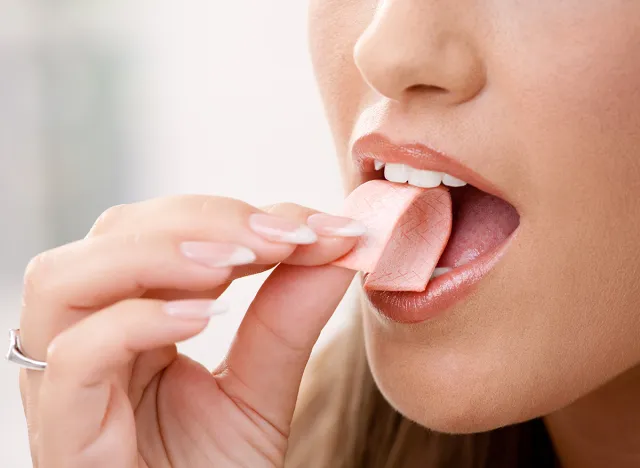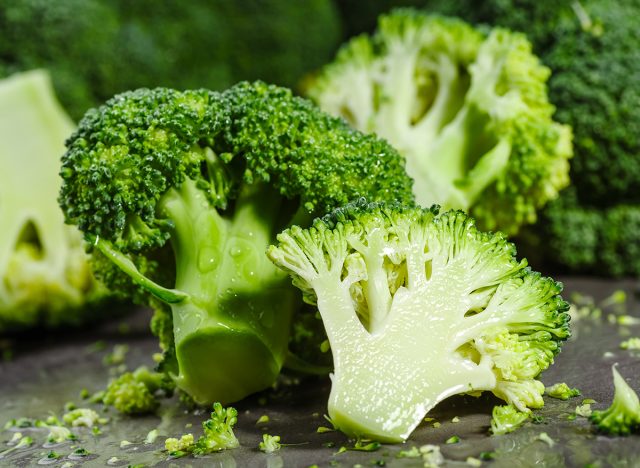5 Ways to Suppress Your Appetite Without Taking Ozempic

Want to quell your appetite without taking Ozempic? "In my years of practice, I've seen clients able to manage their appetite naturally by means of changing their mindset and how they perceive the idea of dieting," says Catherine Gervacio, a registered dietitian and a certified exercise nutrition coach at E-Health Project. Here are some proven tips from her and other leading experts in the field.
1. View Food as Fuel, Not as an Anti-Stress Regimen

"First, you want to view food as fuel, not as a reward or anti-stress regimen. Shifting your perspective on food provides deeper insights into what it can provide your body, specifically on recognizing the nutrients each meal provides and how each food contributes to your overall health and well-being," says Gervacio. "Taking this into a positive perspective, practicing gratitude also helps. Cultivate gratitude and acknowledge the effort that went into preparing your meals. This mindset can change the way you think about food and foster a good connection to what you eat.
"There's also potential for using aromatherapy to reduce appetite. Lemon or citronella scents can potentially help, according to a study," she continues. "I, and some of my clients, use essential oils for different health reasons, so lighting a candle with the mentioned scents may help. You can also choose to chew sugar-free gum strategically. Chewing gum can stimulate saliva production, which not only aids digestion but also provides a sensory distraction that can help suppress appetite."
Related: I Lost 35 Pounds With These 3 Simple Tricks (And I Hate Exercise)
2. Eat When Hungry

"Eat when hungry," says Blanca Garcia, Registered Dietitian Nutritionist, I am the nutrition specialist at Healthcanal. "An appetite arises simply because you are hungry, there isn't a special pill or formula that can solve this as naturally as just eating. Having a snack or a meal that is balanced in complex carbohydrates and proteins can just naturally calm your appetite."
3. Eat Foods Full of Protein and Fiber

"Fiber is a complex carbohydrate that, when eaten, won't be broken down and absorbed like other nutrients. Fiber actually maintains its form, taking its time to move out of the stomach making a person feel full longer and managing appetite levels," says Garcia.
"Consumption of high fiber foods can assist in feeling fuller longer, these foods include whole grains, beans, lentils, broccoli, artichoke and berries. The recommended amounts are 25 grams for women and 38 grams for men per day," says Yelena Wheeler, MPH, RDN, Registered Dietitian Nutritionist of National Coalition on Health Care (NCHC).
"Protein and fiber are the two greatest allies when it comes to satiety, and having meals rich in them can help manage your satiety during the day," adds Eva De Angelis, Licensed Dietitian Nutritionist and Health and Nutrition Writer at the E-Health project. "Fiber is a complex carb that we cannot digest, but it helps slow down nutrient absorption, providing higher satiety. Likewise, protein takes longer to digest, keeping us full for longer. So having balanced meals high in fiber (think foods like veggies, fruits, whole grains, and pulses) and lean protein (think chicken and turkey breast, lean red meat, eggs, tofu, tempeh, and pulses)."
Related: Fitness Expert Wows With Their Abs And Shares Their Proven Routine
4. Drink Water Prior to Your Meal

"Consuming 1 cup of water prior to your meal may induce the feeling of fullness which in turn would cause one to decrease consumption during the meal," says Wheeler. She adds:
- "Consumption of Yerba Mate in combination with exercise prior to the meal has shown positive effects on increasing satiety.
- Consumption of a balanced diet that consists of healthy fats, lean protein and fiber will keep one feeling fuller longer and in turn suppress cravings for simple carbohydrate like foods. Healthy fats such as those from avocados, chia seed and walnuts are recommended to be added.
- Consumption of ginger and green tea has also shown to suppress appetite in a few small studies.
- Drinking a small cup of coffee 1 to 3 hours prior to the meal has also been shown to have an effect on appetite hormones and perception."
Related: Fitness Expert Wows With Their Abs And Shares Their Proven Routine
5. Avoid Mindless Snacking

"When we are hungry, our appetite comes into play, telling us we need nutrients to keep going. When we snack frequently, and often not for hunger but just because, we messed with our hunger and satiety cues, making it harder for us to know when we´re eating for hunger and when for boredom. While hard at first, try mindful eating and follow your hunger cues," says De Angelis.
💪🔥Body Booster: Consider chewing gum when you're feeling hungry. It stimulates saliva production, which not only aids in digestion but also serves as a sensory distraction to help curb your appetite.




